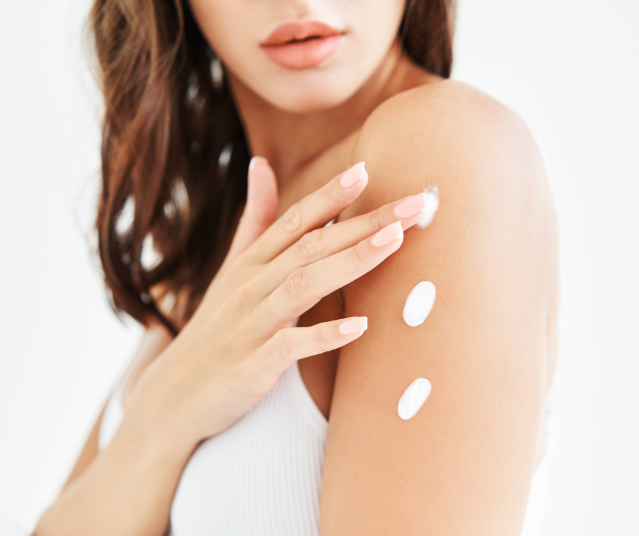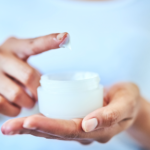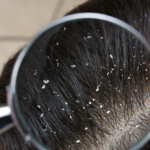Winter can be harsh on your skin. The cold air outside and indoor heating can strip moisture, leaving your skin dry, flaky, and irritated. But don’t worry—The Best Moisturizer for Winter can help! With the right moisturizer and a little extra care, you can keep your skin hydrated, healthy, and glowing all season long.
Why Winter Demands Extra Skin Protection

The Impact of Cold Weather on Your Skin
Winter’s dry air, low humidity, and harsh winds can strip your skin of natural oils, causing dehydration. Using The Best Moisturizer for Winter helps combat dryness and protect your skin, even against indoor heating’s drying effects.
Common Winter Skin Issues
Winter often brings issues like flakiness, tightness, redness, and sensitivity. Without using The Best Moisturizer for Winter, these problems can worsen, leading to irritation or even cracking.
Understanding Your Skin’s Winter Needs
How Winter Affects Different Skin Types
No two skin types react the same to winter. Dry skin becomes drier, oily skin may feel flaky, and sensitive skin could experience redness and irritation. The Best Moisturizer for Winter can help address these unique needs.
Signs Your Skin Needs a Better Moisturizer
Does your skin feel tight after applying moisturizer? Are you noticing dry patches or redness? These signs suggest that your moisturizer might not be the best for winter. Try The Best Moisturizer for Winter to keep your skin properly hydrated and protected.
Key Ingredients to Look For in a Winter Moisturizer
Hydrating Ingredients
Look for humectants like hyaluronic acid and glycerin in The Best Moisturizer for Winter. These ingredients draw moisture into the skin, helping to keep it hydrated all day long.
Barrier-Repairing Ingredients
Ceramides, cholesterol, and fatty acids are key ingredients in The Best Moisturizer for Winter to help restore your skin’s natural barrier and keep it protected from harsh winter conditions.
Natural Oils for Extra Nourishment
Jojoba oil, shea butter, and avocado oil are excellent ingredients to look for in The Best Moisturizer for Winter, as they help seal in moisture and keep your skin soft and hydrated.
Read More : Skincare Routine
Types of Winter Moisturizers

Creams vs. Lotions vs. Ointments
While lotions are lightweight, The Best Moisturizer for Winter, like creams and ointments, provides deeper hydration, making them ideal for protecting your skin during the colder months.
Water-Based vs. Oil-Based Moisturizers
Oil-based moisturizers tend to be more effective in colder months as they create a protective layer over the skin.
Best Moisturizers for Different Skin Types
For Dry Skin
Choose rich, emollient creams loaded with ceramides and natural oils.
For Oily and Combination Skin
Opt for gel-based moisturizers with hyaluronic acid to hydrate without clogging pores.
For Sensitive Skin
Fragrance-free, hypoallergenic options with soothing ingredients like aloe vera are ideal.
Tips for Choosing the Right Moisturizer
Consider Your Skin Type
Always pick a product tailored to your specific skin needs.
Avoid Harmful Ingredients
Steer clear of alcohols, fragrances, and harsh exfoliants in winter products.
Building a Winter Skincare Routine
Prepping Your Skin for Moisturizer
Start with a gentle cleanser to remove dirt without stripping natural oils.
Layering Products for Optimal Hydration
Apply serums first, followed by your moisturizer. Finish with sunscreen.
Importance of Sun Protection in Winter
Yes, you still need SPF! UV rays can damage your skin even on cloudy winter days.
Natural and DIY Moisturizer Options
Homemade Recipes for Winter Skin Care
Mix aloe vera gel with coconut oil or use a honey and yogurt mask for hydration.
Benefits of Using Organic Products
Organic products reduce exposure to harmful chemicals, making them safer for sensitive skin.
How to Apply Moisturizer for Maximum Benefits

Best Practices for Application
Use gentle, upward strokes on damp skin to lock in moisture effectively.
When and How Often to Moisturize
Twice a day—morning and night—is the sweet spot for most skin types.
Mistakes to Avoid When Moisturizing in Winter
Overloading Products
Using too many products can overwhelm your skin, reducing their effectiveness.
Using the Wrong Texture for Your Skin
Heavy creams on oily skin? Not a good idea. Match your moisturizer to your skin type.
Conclusion: The Secret to Happy Winter Skin
Winter skin protection isn’t just about slapping on any moisturizer; it’s about understanding your skin’s unique needs and tailoring your routine. Choose products with hydrating and barrier-repairing ingredients, avoid harsh chemicals, and don’t forget SPF—even in winter! With a bit of effort, your skin can stay healthy, hydrated, and radiant all season long.
FAQs
- What makes a moisturizer suitable for winter?
A good winter moisturizer contains hydrating and emollient ingredients like hyaluronic acid, ceramides, and natural oils to combat dryness and lock in moisture. - How often should I moisturize during winter?
Twice daily—once in the morning and once before bed—helps keep your skin hydrated and protected. - Can oily skin benefit from winter moisturizers?
Absolutely! Oily skin still needs hydration. Look for lightweight, non-comedogenic options. - Are natural moisturizers effective in cold weather?
Yes, natural moisturizers with ingredients like shea butter, jojoba oil, and aloe vera are excellent for nourishing winter skin. - Should I change my moisturizer when the seasons change?
Yes, switching to a heavier moisturizer in winter and a lighter one in summer helps meet your skin’s seasonal needs.










